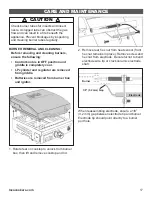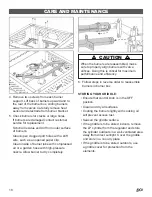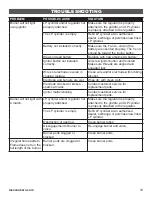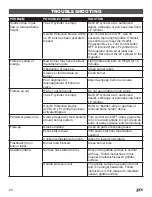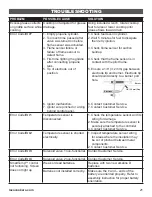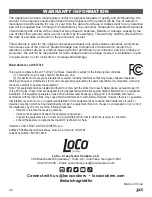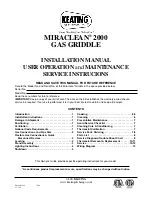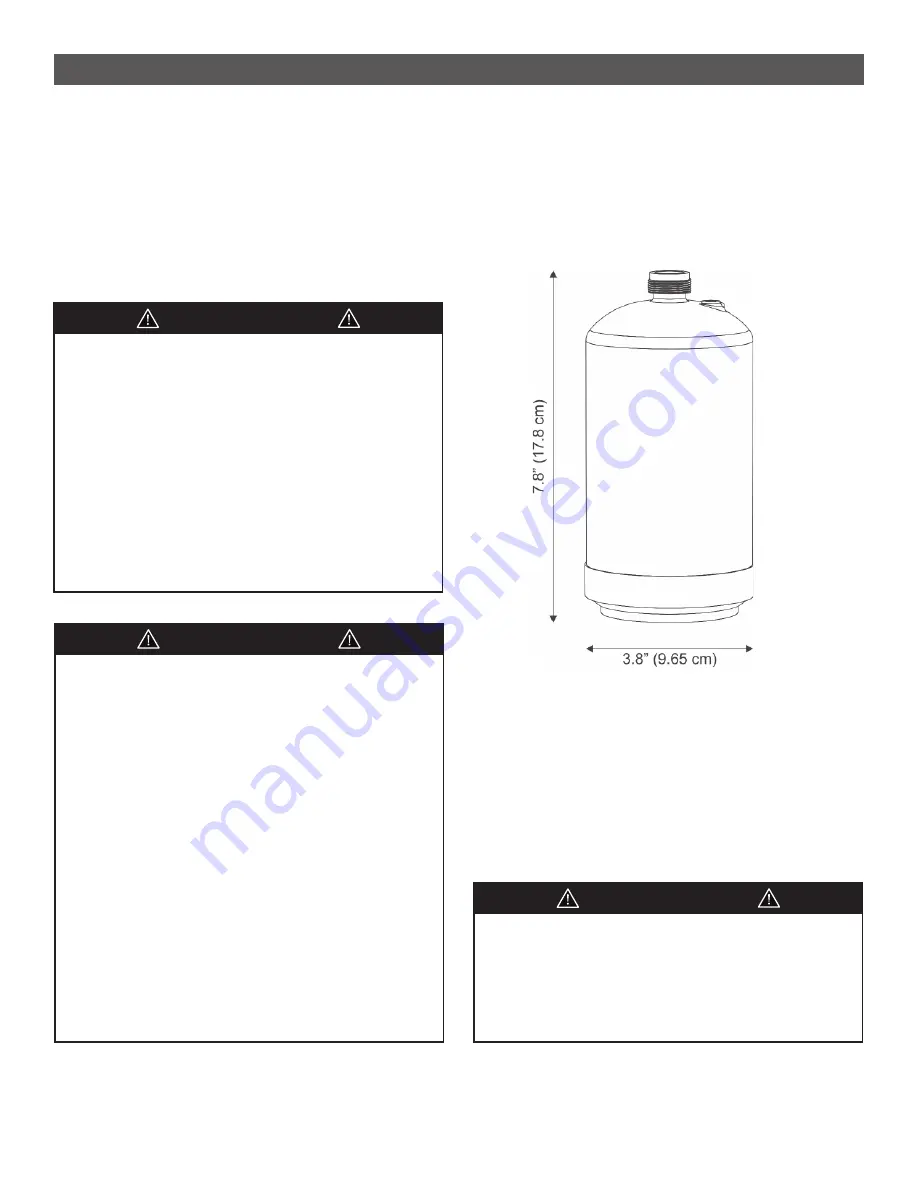
11
lococookers.com
LP GAS CYLINDER
• If you smell, see or hear leaking gas,
IMMEDIATELY get away from the
LP cylinder and contact your FIRE
DEPARTMENT (911).
• Only cylinders marked “propane” shall be
used.
• Never use a cylinder with a damaged body,
valve, collar or footing. Dented or rusted
cylinders may be hazardous and should
be checked by your LP gas supplier before
use. The cylinder should not be dropped or
handled roughly.
• Never keep a cylinder in a hot car or
trunk. Heat will cause the gas pressure to
increase which may open the relief valve
and allow gas to escape.
DANGER
Lique
fi
ed Petroleum Gas (LP):
• LP gas is odorless, non-toxic and colorless
when produced. For your safety, LP gas has
been given an odor (similar to rotten eggs) so
you can smell if there is any leaking.
• LP gas is highly
fl
ammable and can
unexpectedly ignite when combined with air.
1. Do not store a spare LP gas cylinder
under or near this appliance.
2. NEVER
fi
ll the cylinder beyond 80% full.
3. If the instructions in 1 and 2 are not
followed exactly, a
fi
re causing serious
injury or death may occur.
The safety release valve on the LP
cylinder could activate the leaking of gas
and cause a severe
fi
re and increase the
risk of serious injury or death.
DANGER
LP CYLINDER
The LP cylinder must meet the following
requirements in order to be used with
your appliance:
• Measurements must be 3.8” (9.65 cm) in
diameter by 7.8” (17.8 cm) high with 16.4 oz
(0.46 kg) maximum capacity.
• The LP gas supply cylinder to be used must
be constructed and marked in accordance
with the
Speci
fi
cations for LP Gas Cylinders
of the US Department of Transportation
(DOT) or the Standard for
Cylinders,
Spheres and Tubes for the Transportation of
Dangerous Goods and Commission,
CAN/
CSA-B339.
NEVER insert any tool or foreign object into
the LP cylinder valve outlet or safety relief
valve. You may damage the valve or cause
a leak which can lead to explosion,
fi
re,
personal injury or death.
DANGER

















